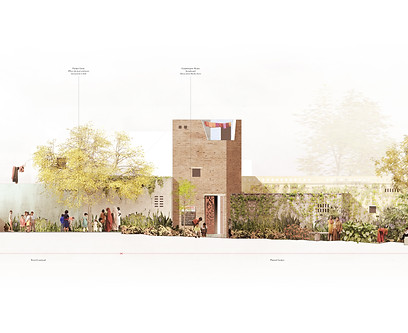Jonathan Weaver
ARCSR Diploma in Architecture 2010-11
Urban Planning Specialist, UN-Habitat
Bio
ARCSR Alumni Profile
What does your day to day role involve?
Guiding local authorities on sustainable urban design and planning interventions
What do you enjoy most about your job?
I get to combine design with broader sustainability agendas in complex environments
Did you have to undertake any additional qualifications to get into your chosen career, if yes please describe your route
I have not taken additional qualifications per se, but I have taken a professional route that required me to do internships and take roles outside that of the traditional architecture route. I am currently in the process of becoming RTPI accredited.
Do you think your ARCSR experience directly assisted you in obtaining your current role and career path?
Yes, very much so. I think it taught be a lot about understanding the locality of a place, truly understanding what it means to analyse a place and a community to contextualise and avoiding predetermined solutions.
What did you enjoy most about the course?
Extended field trips that allow you to engage extensively with a place, and an open and frank unit spirit!
What are your professional ambitions?
To continue working in the urban development sphere but to engage better with the development banks who play instrumental shape the international policy environment, but perhaps in too much of a "top-down" way.
In your opinion, what are the essential skills for you career?
Being able to listen to and interpret grass-roots understandings in tandem with top-down policy agendas. Understanding these systems and dynamics are crucial in order to respond effectively to a community but to have impact and achieve scale, you need to engage with local authorities, governments and influential agencies.
If you are undertaking research, what sort of research is it?
How to plan more sustainably for protracted refugee contexts where short term humanitarian interventions are not unlocking real opportunities for pathways to self-reliance and broader sociocultural and economic opportunities to be realised.
What is your best memory of ARCSR?
Preparing the degree show exhibition and (despite the stress levels) being proud of the work and yet sad that this learning experience was over.
What advice can you offer to new ARCSR students?
Understanding stakeholders effectively means understanding the local political economy, even within small community groups. Ask who are the decision makers, why are they in such positions of power? How does the architecture/urban form illustrate/perpetuate this? How should you respond to this, appropriately, to support in implementing incremental improvements?
And finally, tell us a bit about what you are currently working on at the moment.
Working with UN-Habitat and UNHCR to develop tools for refugee hosting neighbourhoods and local authorities to better map, understand and analyse local infrastructure, facilities, within the context of the particular enabling environment. This then is supported through a participatory process of developing validated scenarios and prioritised interventions for longer term development donors and development banks to potentially fund.









